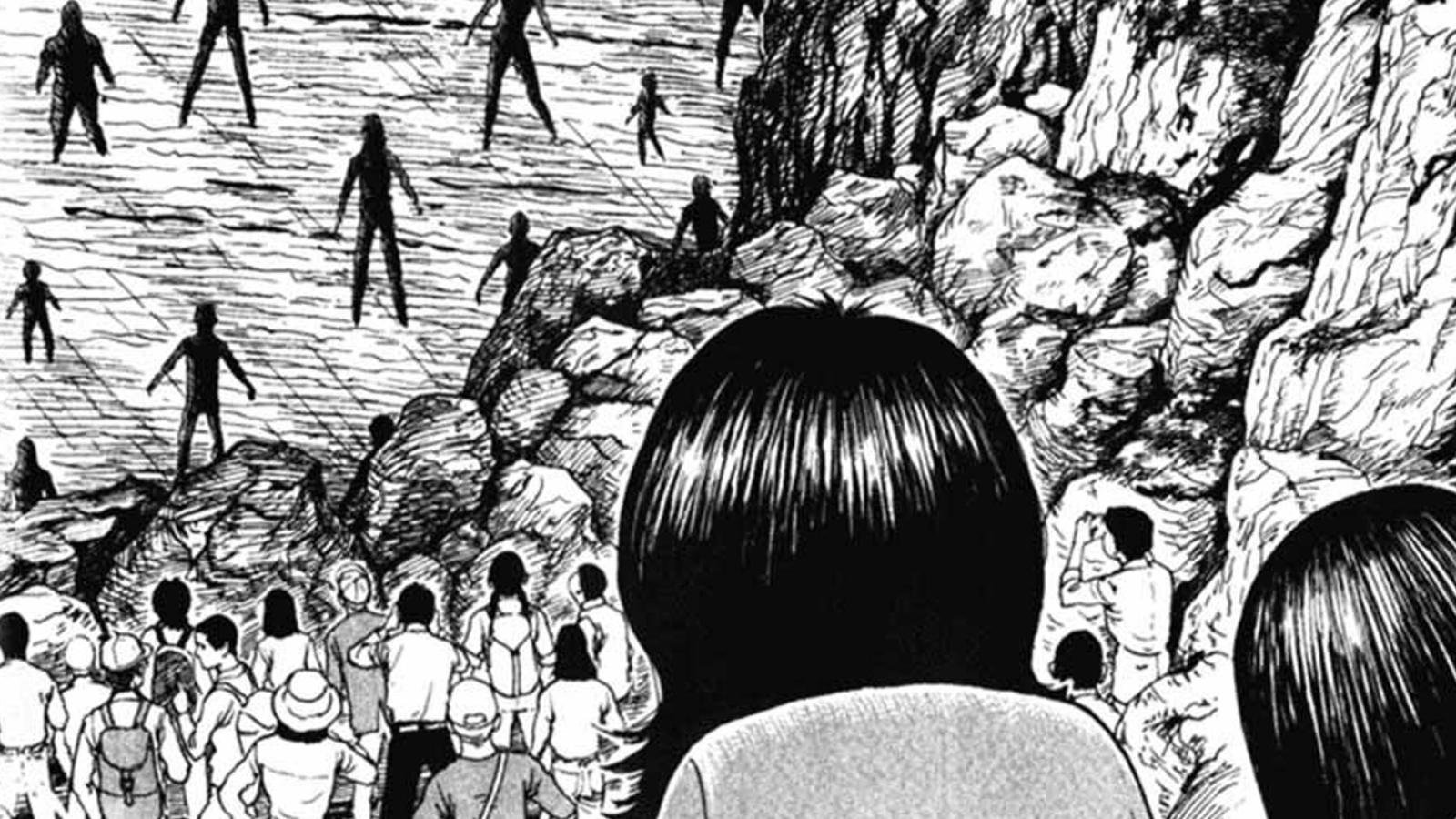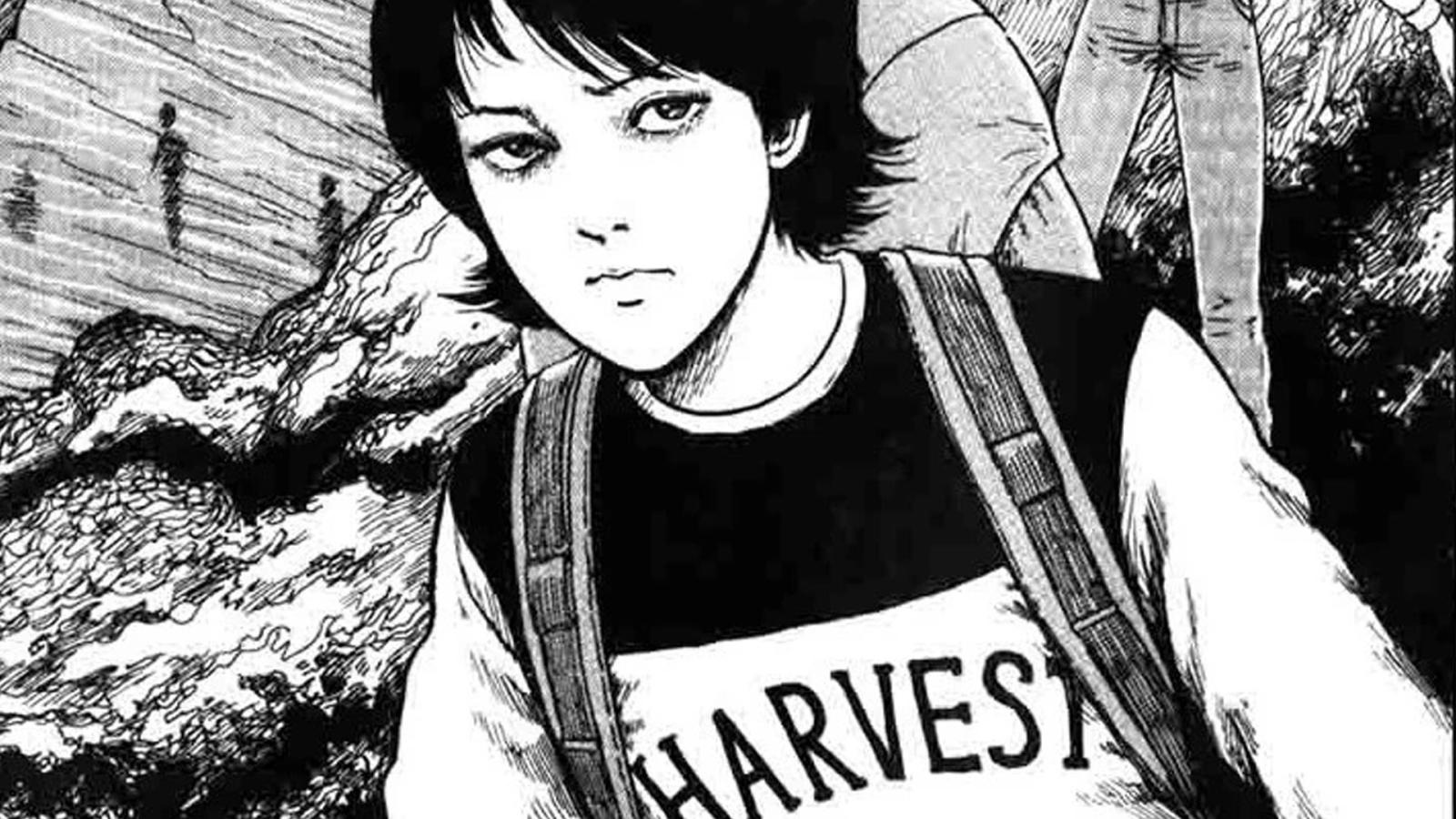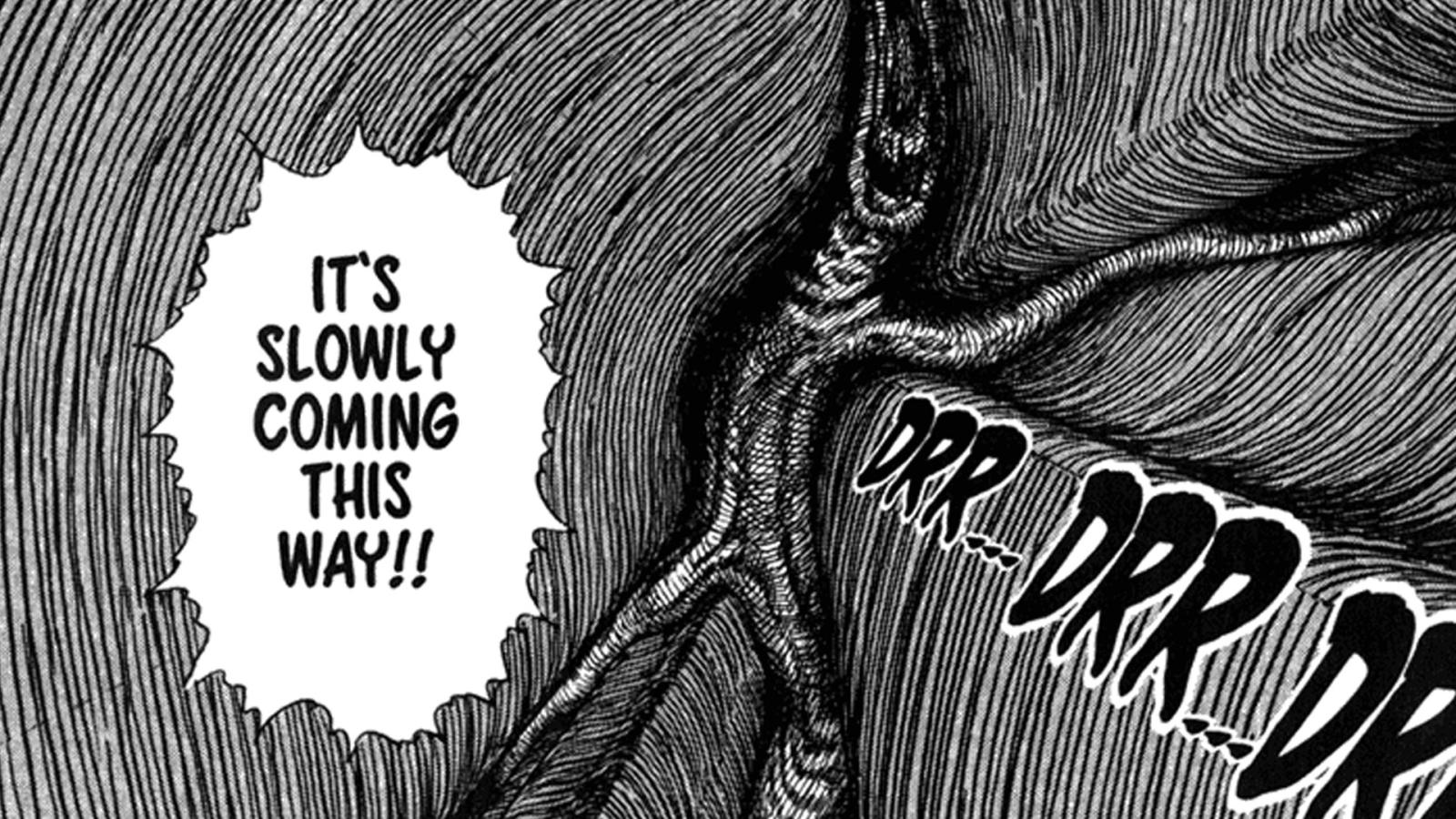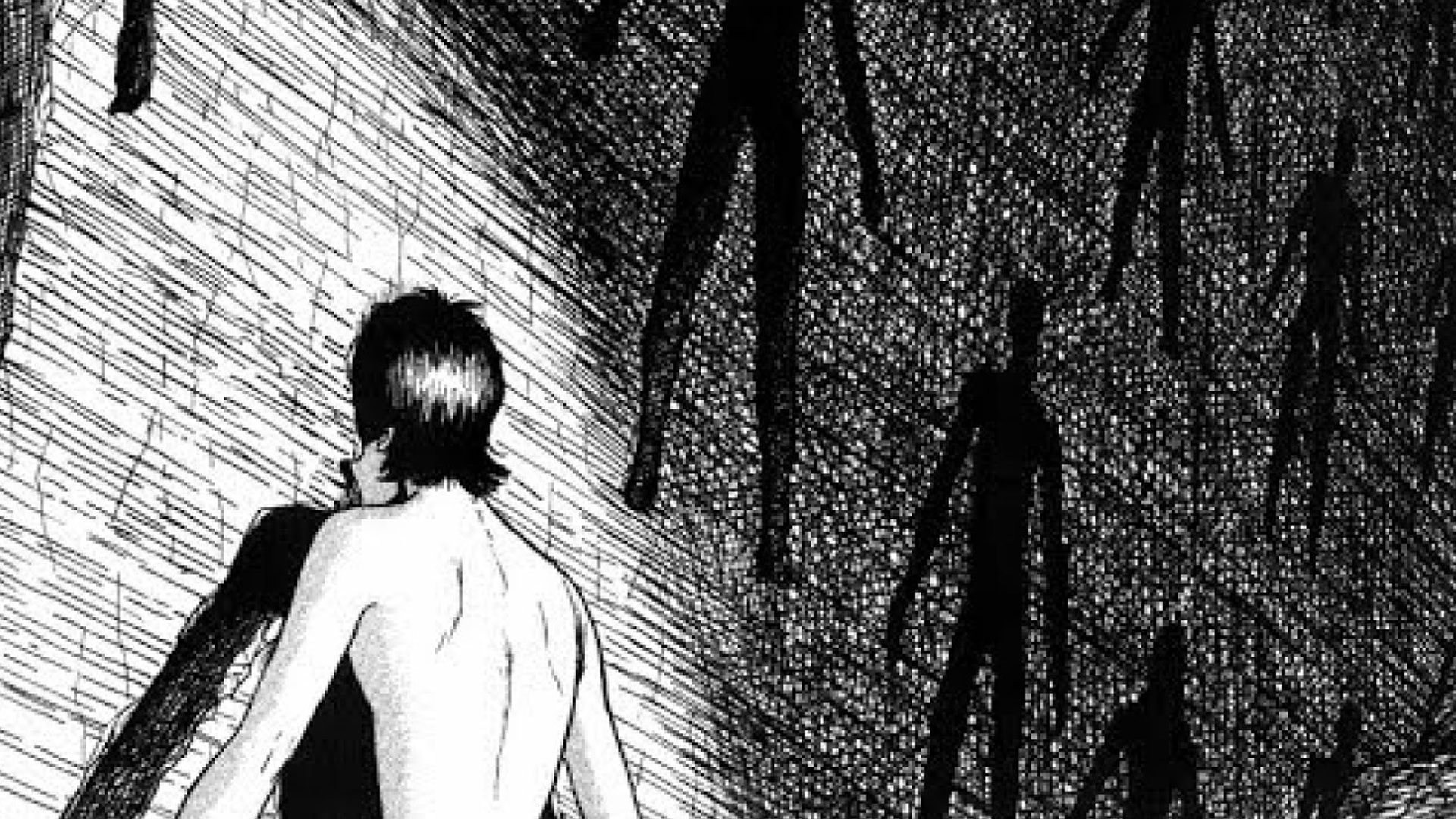Junji Ito’s Amigara Fault makes you feel small in front of a cosmic force that is random chance.
Junji Ito is a cosmic horror mangaka, and he is praised for mastering the cosmic horror trope of terrible things just happening. There is no need to explain why there are suddenly humongous balloons in your neighborhood or why a zombie apocalypse is taking place. Things just happen, and now you have to struggle to survive with the odds stacked against you.
That’s what cosmic horror is; things happen for reasons we might not be able to understand or for no reason at all, and they are rarely good for the protagonists, who cannot hope to even comprehend the problem, let alone solve it.
It does not mean, though, that Junji Ito’s stories cannot be used as metaphors or vehicles for discussing real-life events and circumstances. Our world will probably not become infected with strange balloons, but that does not mean you cannot feel for the protagonist after being locked up during the COVID pandemic. You might not have feared being hanged, but you did have to stay in for safety reasons.
While the prophetic metaphor of staying inside to avoid floating death might be interesting to discuss, today we want to consider another story, The Enigma of Amigara Faults. The next paragraph is a spoiler, so skip it if you feel like reading the story first. Fair warning, it is full of claustrophobia and body horror.

After an earthquake, a fault is unearthed that is full of human-shaped holes. Soon, people realize that many have “their” holes in the fault: the holes that fit them perfectly. They are compelled to enter the holes, and once they do, they cannot come out and can only move forward. A while later, the other side of the fault is discovered, and the holes are there, but they are no longer human-shaped. The humans, as they pass through those holes, change along with them.
It is a well-known story, and one that has been already used to discuss issues people actually face. For example, some people consider the choices we make throughout our lives and how they lock us into a pathway that changes us and that is difficult to go back from.
It is possible to apply many metaphors to the Amigara Fault, but here we want to consider not the holes themselves, but the fact that the people are compelled to go in. They are not forced to; in fact, they might be begged not to go inside. After the first victim, they know people won’t come out. Some of those going in are terrified and claustrophobic. And yet, they go in, as if it is their destiny.

The notion that everything in your life and outside of it is predetermined is called determinism. According to Britannica, determinism does not work well with the idea of free will. It does not mean that the two are incompatible (unless you are a “hard” determinist, in which case you do not believe in free will at all). No, “soft” determinists exist, and they have a specific perspective on the notion of free will, which makes it more compatible with determinism.
For example, one can argue that you can only act in one way, but you can also approve of your actions and desire to act that way. In this case, even though you could not have acted differently, you do exert free will by choosing what you want. However, this concept does not work well with Amigara; in it, people are often reluctant and terrified to step into the holes, but they cannot help it.
Another soft determinism approach sounds more like Amigara. From the perspective of British philosopher G.E. Moore, acting of one’s own free will means that a person could have acted differently from his actual action, but he didn’t. The people trapped in the Amigara faults could have chosen not to step in the holes. But in the end, that possibility is not something that would happen, because they are compelled to enter by an unknown force.

Britannica highlights that even from the perspective of indeterminism, which is the radical opposite of determinism, free will does not exist either. That is because indeterminism speaks of random chance, over which humans have no control and therefore cannot exert free will. And that is just what is happening in Amigara. If their hole exists, that random person’s fate is sealed, and it is not pretty.
In real life, humans live like they have free will and are capable of choice. But Amigara can be used as a perfect metaphor for the lack of one’s control over their life connected to random events. The earthquake was a random event that happened far away from some of the victims, but it affected them profoundly. Through random chance, only some people found their holes, and it is only those people that were doomed to enter the fault.
That is what Amigara Fault can be envisioned as. Something horrific, something that you did not want to happen and that did not have to happen, but that affects you deeply and changes you. On a smaller scale, it can be addiction or the pain of losing someone; on a larger scale, war seems like the perfect example. The change the victims of Amigara undergo is profound, inevitable, and fully outside of their control. They live through this event, this horror, and it does not just scar them; it turns them into something different.
Whether people have free will or not is a philosophical question. But sometimes, things just happen, and as life presses you into a new shape, your free choice does not matter much.
Source: Youtube

